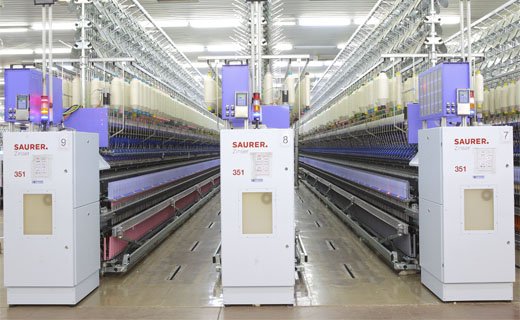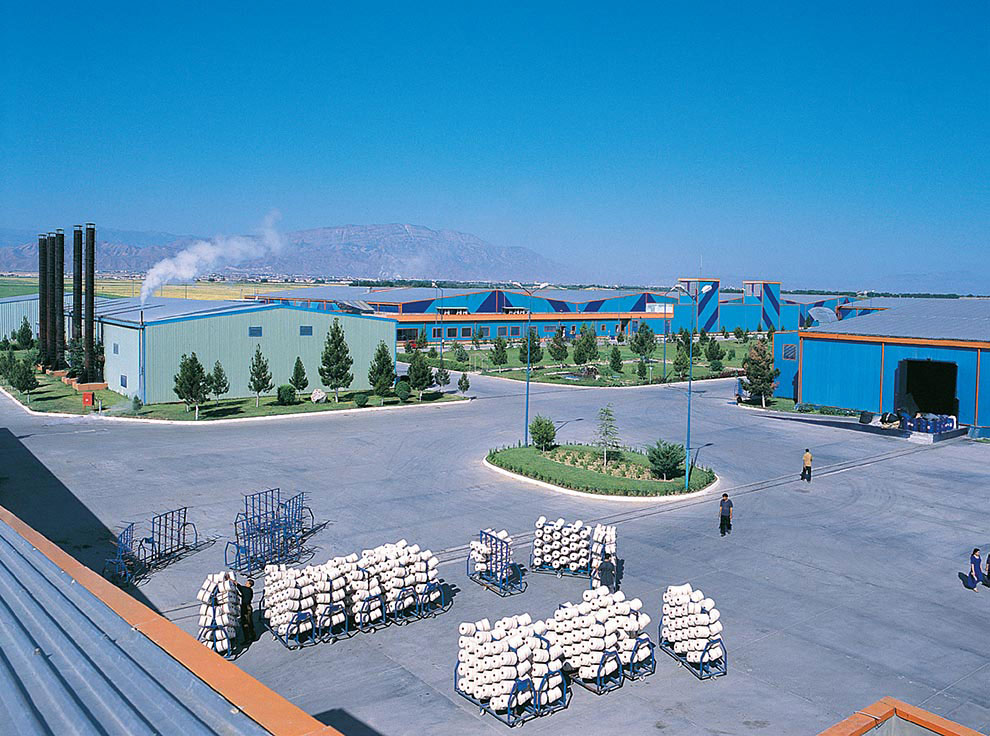Turkmenbashi Jeans Complex Annually Produces Over 1.8 Million Denims
Turkmenbashi Jeans Complex, located in Ahal velayat’s Ruhabat etrap in the southern Turkmenistan, is one of the leading enterprises in the textile industry of Turkmenistan, the newspaper Neutral Turkmenistan reports.
Jeans complex named after Turkmenbashi fulfills orders of world’s leading companies such as Collin’s, Zolla, Modis. The complex also exports denim clothing to various countries of the world.
Production of denim clothing begins with the processing of cotton into yarn. The processing of cotton fiber into yarn consists of lengthy operations of loosening, mixing, cleaning, brushing, tedding, spinning and pressing. As a result, cotton fiber becomes a high-quality, clean and durable yarn.

After the thorough inspection of the yarn by qualified laboratory personnel, the batches of material are sent to the dyeing workshop of the complex.
75 specialists, in three-shift mode, work in the dyeing workshop. During the shift, the team dyes 12 thousand meters of threads in blue. The dosage of paint and its supply are monitored by a computer. The dyed threads then enter the sewing workshop.
Sewing factory
Here, the main tools are sewing machines. The complex is equipped with machinery from leading manufacturers of Germany, Switzerland, and Japan. More than 900 women work at the factory in two shifts, sewing different types and styles of trousers, shirts, jackets and shorts.
“Our BEDEW brand denim clothing is exported to countries such as Russia, Ukraine, Turkey, the USA, Kazakhstan and various countries of Europe and Asia,” Deputy Director of the Sewing factory Olga Sigitina says.

Along with the introduction of the latest technologies in the jeans complex, considerable attention is paid to improving the quality and compliance of products to environmental safety requirements. Accordingly, the complex was awarded the certificates of ISO 9001 Quality Management System, ISO 14001 Environmental Management System, and OHSAS 18001 Occupational Health & Safety Management System.
In addition, the Worldwide Responsible Accredited Production (WRAP) standards are applied in the complex.
The complex also applies innovative technologies. This can be observed at the laser workshop of the complex, where various patterns, gradients, emblems and other patterns are applied to durable denim using a laser in 90 seconds.
The complex was created in several stages. In 1995, a dyeing workshop was commissioned, and in 1997, a spinning and sewing factory was commissioned. The Jeans Complex covers the total area of 21.5 hectares, and annually produces nine thousand tons of yarn, about 17 thousand square meters of fabric and 1.875 million units of jeans. The complex employs about three thousand people.
Source: business.com.tm


